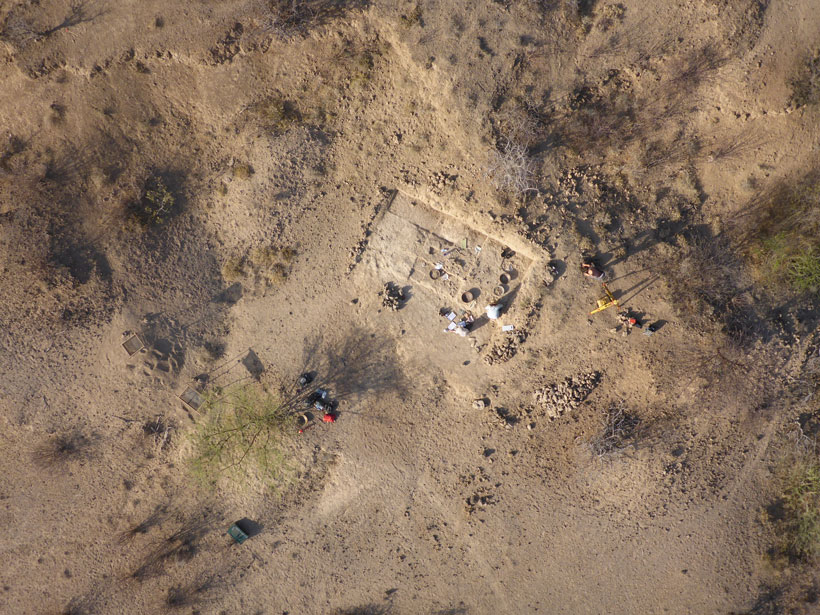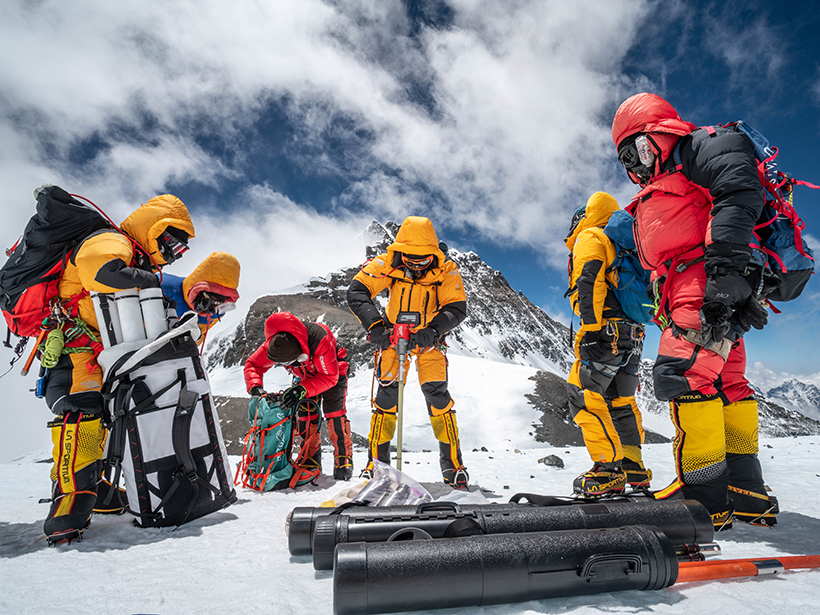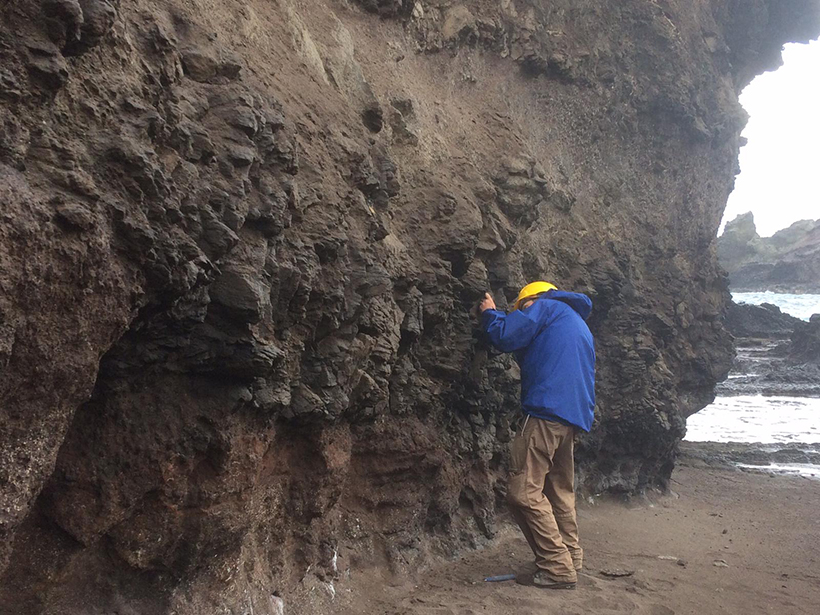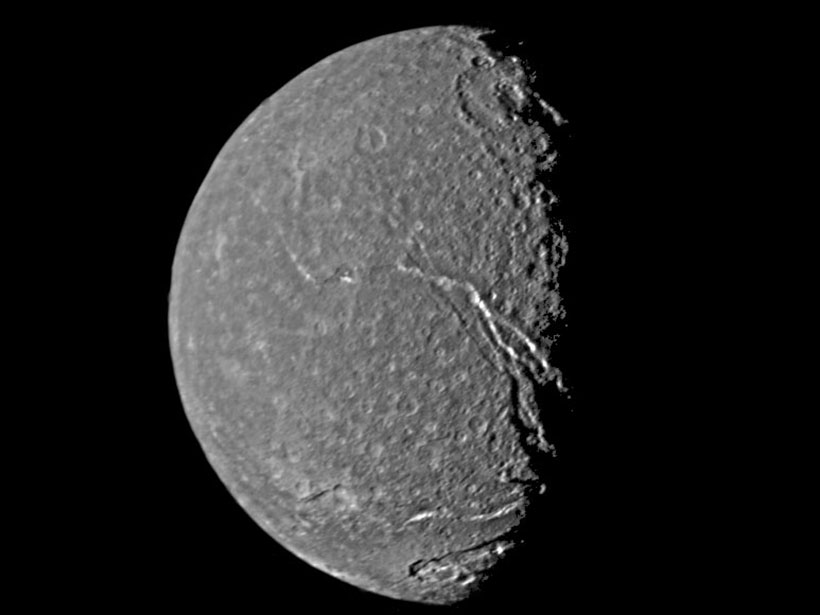A familiar geochemical technique shines a new spotlight on early hominin use of fire.
News
An Ice Core from the Roof of the World
An innovative National Geographic expedition collected the world’s highest ice core from Mount Everest.
A Robust Proxy for Geomagnetic Reversal Rates in Deep Time
The strength of Earth’s magnetic field in the distant past can tell scientists whether the planet’s magnetic poles were steady or prone to frequent reversals.
Tracing the Moisture That Nourishes the World’s Highest Glacier
Using data from weather stations on and around Mount Everest, scientists find that the Khumbu Glacier receives most of its moisture from the Bay of Bengal.
Do Uranus’s Moons Have Subsurface Oceans?
Scientists tested whether a classic technique could detect subsurface oceans on the moons of Uranus. In this scenario, the planet’s oddball magnetic field offers a big advantage.
Saving Lives by Predicting Dust Storms
In the southwestern United States, dust storms form suddenly, quickly reducing visibility to zero. A new warning system may allow motorists to avoid these deadly hazards.
Earth’s Magnetic Field Holds Clues to Human History
Items burned in the sacking of ancient cities are time capsules of geomagnetic data.
La Geología y la Química Impulsan la Migración Animal en el Serengueti
Trabajo de campo en Tanzania sugiere que la química del suelo—influenciada por el vulcanismo local y la actividad tectónica—podría ayudar a determinar la migración sin precedentes de más de un millón de ñus.
Beast of the Central Arctic
Feast your eyes on Beast, the first remotely operated vehicle to brave the Arctic for 1 year.
Coastal Brazil Is Likely to Face More Heat Waves and Droughts
In 2014, São Paulo experienced its greatest water crisis ever, caused by an intense drought. New research indicates that it is likely to happen again and be even more severe.










